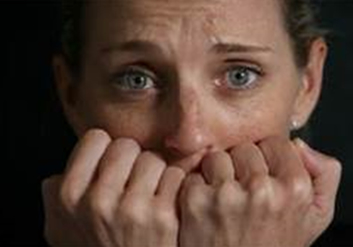Hypnosis and hypnotherapy are very powerful tools that can treat a wide range of problems and conditions. At Hypnosis en Español Chicago we consider it almost impossible to list all possible applications on just one page, but here is a list of the most common applications in which we can help you with the use of hypnotherapy.
ANXIETY DISORDER

Experiencing anxiety is a fundamental part of life. However, when anxiety is prolonged and it turns into a chronic problem, it can become an obstacle in your relationship with others, it can hinder your performance at work, and it can prevent you from participating in social activities or family events.
Anxiety is generally an anticipated fear versus an unknown future event and it can be difficult to define. The emotional reaction of fear or anxiety tends to be exaggerated, intense, and persistent.
Anxiety is usually seen with the following symptoms: heart palpitations (the sensation of the heart beating strongly), an increase in heart rate, dizziness, agitation, involuntary shaking of the extremities accompanied with feelings of tingling or numbness, diarrhea, profuse sweating and feeling the urge to
urinate or incontinence.
Someone with anxiety can feel embarrassed with the possibility that others may notice what is happening to them. Anxiety can also cause confusion, and as it worsens, it can lead one to feel like they are “losing their mind.”
PANIC ATTACKS
A panic attack is a sudden onset of intense fear that is accompanied by the following symptoms:
- Heart palpitations
- Chest pain or feelings of discomfort
- Difficulty breathing or feeling tightness
- Numbness or tingling especially in the extremities
- Shaking of the extremities
- Sweating
- Nausea
- Dizziness
- Intense fear of losing control or “losing your mind”
- Fear of death

Panic attacks can occur due to intense physical activity or an emotional trauma.
People usually focus
their attention on the physical symptoms and seek medical attention with the belief that their health is in danger.
A panic attack can last for 20 to 30 minutes and the symptoms gradually disappear. However, some people are left with the fear of having a future panic attack.
AGORAPHOBIA
Agoraphobia is the fear of being in an enclosed space that may be difficult to get out of. Commonly, it can be seen in the form of a panic attack in a public setting and the person is afraid of not being able to escape the enclosed space.
Agoraphobia can be described with:
. Having fear of using public transportation
. Having fear of being in open spaces
. Having fear of being in enclosed spaces
. Having fear of waiting in line or of being in a place with a lot of people
. Having fear of being alone outside of your home
A way for agoraphobia to be avoided or at least confronted would be for the person to be accompanied by a trusted friend or acquaintance. The fear and anxiety that is caused by agoraphobia can be exaggerated and persistent.
SOCIAL PHOBIA
Social phobia is the anxiety that is caused by a situation where it is necessary to interact with new people or when it is necessary to participate in a social activity. The fear associated with this is fear of critiques and scrutiny.
The social activities can be reunions, first time meetings, participating in a group discussion, or doing a presentation for a project. The person who has social phobia can be described as sensitive and as a person who has an irrational fear of being ridiculed.
People who suffer through this experience nervousness, blushing, and muscular spasms on top of feeling the anxiety.
Social anxiety can be characterized by:
Experiencing an intense fear when one is in a social event. The fear that is experienced is usually amplified.
Being afraid that others will notice the anxiety and being afraid of being judged by others, feeling humiliated by others, or feeling rejected.
Any social situation that is perceived as scary to an individual who suffers social phobia will always trigger the feelings of fear and anxiety, therefore, the person will avoid those situations at all costs.
The anxiety that is experienced with social phobia usually tends to last at least 6 months and it can be a serious impediment in the person’s everyday life.
GENERAL ANXIETY DISORDER

Anxiety disorder can be characterized by undergoing an intense worry over different daily events or activities that persists for many months. The worry or fear can become obsessive and it can be accompanied by physical symptoms, such as headaches, muscle pain, insomnia, personality changes, irritability or restlessness.
The main characteristics of general anxiety disorder are:
Experiencing a considerable amount of anxiety and worry regarding personal activities or events. The anxiety is usually hard to control.
The individual will complain about a persistent restlessness, will get tired easily, will not be able to concentrate, will become irritable, will have trouble sleeping, and will get tense easily.
RELATIONSHIP ISSUES
Issues involving infidelity, using social media, sexual problems such as special preferences, fantasies, miscommunication about intimacy, becoming bored in a relationship, stress related to work, financial problems, chronic illness, mental health, addictions such as gambling, porn, alcohol and drugs,
differences in education, beliefs, family values, and uncontrollable jealousy, lack of attention, lack of communication, and lack of support.
SOCIAL ISSUES
Experiencing a great discomfort participating in social events, having difficulty socializing with other people, having difficulty expressing one’s emotions, thoughts, and opinions, being afraid of public speaking, having difficulty starting and staying in conversation, feeling intimidated with the thought of socializing with the opposite sex.
SELF ESTEEM ISSUES
Not realizing one’s self worth, imagining one’s self appearance to be unattractive, perceiving to be lacking in many different areas, avoiding socializing to avoid scrutiny and critiques, constantly comparing oneself to other people.
ISSUES WITH THE OPPOSITE SEX
Asking oneself how to be more attractive, wanting to develop different aspects of one’s personality to attract the opposite sex, wanting to make changes in personality that seem to be more important than one’s physical appearance, feeling insecure when one is near the person they like, wanting to develop certain physical abilities, verbal communication and other abilities that make one feel more confident in socializing with other people.
